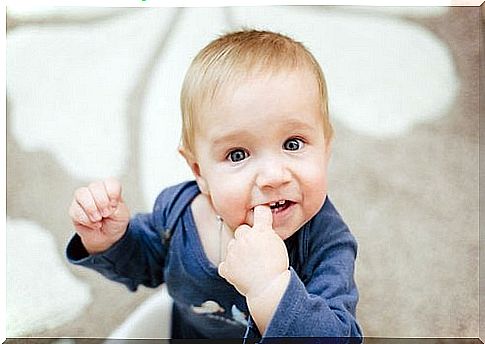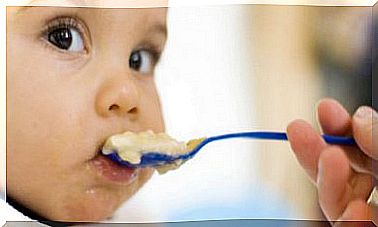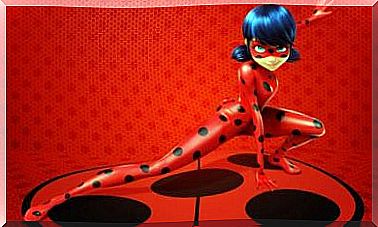The Child Sucks His Finger: What To Do?

Mothers usually have several doubts about some of their children’s attitudes. One of the most common questions is: “The child sucks his finger, what should I do?”. Generally it is a habit that is acquired from the mother’s womb, therefore it is perfectly normal in a newborn and usually lasts a long time.
But what to do when the baby sucks his finger even when he is older?
Most babies put only one finger in their mouth ; others, on the other hand, prefer to suck two and even part of their fist. Some also have a habit of rubbing themselves with a blanket or cloth while sucking. This is all part of a nice natural relaxation ritual for the baby, but when does it stop being normal?
Why does the baby suck his finger?
When you suck on your fingers, pacifiers or cloths, you establish contact between the baby and the world around him. This habit can last up to 2 or 3 years ; if it is a nervous, insecure or very spoiled child, then it could last much longer.
Until when can it be allowed?
It is advisable to keep an eye on this habit and not to allow it to continue for a long time, as it can have consequences for the health of the little one. Many children stop doing it on their own. Others, on the other hand, need an incentive or go from finger to pacifier.
In general, this habit is associated with the need to calm down in the face of something that bothers them or causes them to feel bad. We could say, therefore, that it is their way of relaxing.
If your child sucks his finger for a long time, it increases the likelihood of later defects or abnormalities in the teeth and gums, or problems with the jaw joint.

The child sucks his finger, what are the consequences?
Babies who start finger sucking at an early age usually have many dental problems. Always keeping your finger in your mouth delays the growth of some teeth and favors the onset of deformities. The intensity of the sucking and the thrust of the tongue will certainly generate the need to use the device in the future.
Also, when the baby puts pressure on the palate and pushes it up, it generates what we know as a narrow palate. This impulse steals the space that the nasal cavities need to breathe properly and consequently causes oral breathing.
Furthermore, the finger prevents the tongue from moving freely; this gives rise to the so-called flat tongue, which can generate language difficulties.
Another possible problem is that the upper teeth may move forward, especially the middle ones. This phenomenon is known as malocclusion. To improve this deformation it will be necessary to resort to specific orthodontic appliances.
However, not all the problems related to this habit concern the mouth. Other parts of the body can also be involved, causing severe head and earache.

How to help the little one stop sucking his finger?
Considering all the consequences that the prolonged practice of this habit causes, it is of fundamental importance that parents act promptly. Stopping finger sucking will always be a process that will take some time, as this practice generates many satisfying sensations in the baby.
If your little one uses a finger in his mouth to help him sleep, you could try to give him a soft fabric puppet or a stuffed animal that helps him relax through touch. If, on the other hand, he sucks his finger when he is alone or bored, the best thing to do is to offer him alternative activities that allow him to distract himself. For example, taking him for a walk, reading him something, interpreting a story or playing sports could be good ideas.
Putting on gloves, band-aids, bandaging his finger or greasing him with unsightly substances — such as lemon or spicy ingredients — are, however, old-school alternatives that may have worked in the past.
Today, however, it is much better to work on positive reinforcement through rewards whenever the little one spends some time without sucking his finger. In this way the child will feel encouraged to reach the proposed goal to obtain his reward.
With this motivation and with displays of pride after each period in which the child does not put his finger in his mouth, you will have the key to success to counter this habit adopted in an innate way. Finally, of course, you will also have to resort to a good charge of patience and determination.









